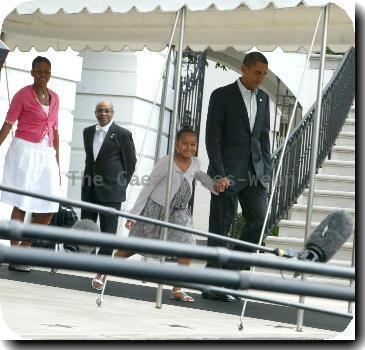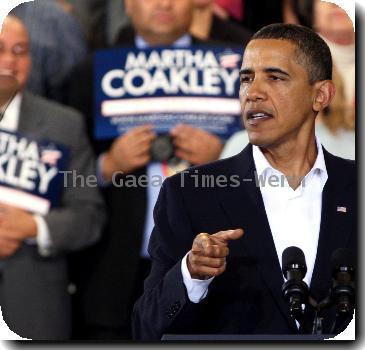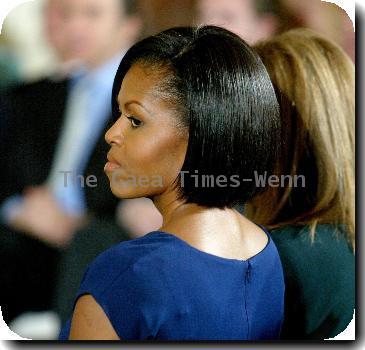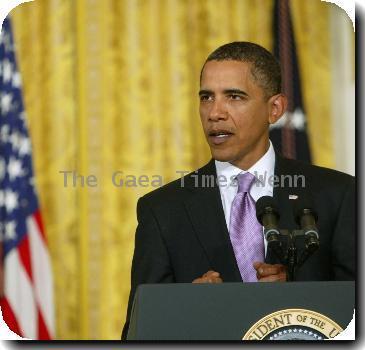In victory for Obama, Senate panel recommends approval of nuclear treaty with Russia
By Desmond Butler, APThursday, September 16, 2010
Senate panel recommends nuke treaty with Russia
WASHINGTON — A major arms control treaty with Russia drew support from three Republicans on the Senate Foreign Relations Committee on Thursday, a sign that one of President Barack Obama’s top foreign policy goals might have the bipartisan support required for ratification.
The committee approved the New START treaty in a 14-4 vote. Whether the full Senate would consider the treaty this year, with midterm elections looming in November, remained unclear.
Obama and Russian President Dmitry Medvedev signed the treaty in April. It would shrink the limit on strategic warheads to 1,550 for each country, down about a third from the current ceiling of 2,200. It also would implement changes in current procedures that allow both countries to inspect each other’s arsenals and verify compliance.
“I encourage members on both sides of the aisle to give this agreement the fair hearing and bipartisan support that it deserves, and that has been given to past agreements of its kind,” Obama said in a statement following the committee vote.
Democrats had delayed a committee vote on the treaty as they sought broader support from Republicans. They will need at least eight Republican votes on the Senate floor to have the two-thirds majority needed for ratification.
Some Republicans say the pact does not establish adequate procedures for ensuring that Russia abides by its terms. They also fear that Moscow could use the treaty to limit U.S. missile defense plans. Some Republicans also are tying their support to assurances that Democrats will provide more money to maintain and improve existing nuclear warheads.
The treaty’s prospects received a boost this week when a Republican on the Foreign Relations Committee, Sen. Bob Corker of Tennessee, endorsed an amendment from the committee’s senior Republican, Sen. Richard Lugar of Indiana, aimed at overcoming his party’s reticence on the treaty. On Thursday, Sen. Johnny Isakson, R-Ga., joined Corker and Lugar to vote in favor of the treaty in the committee.
Some Republicans remained unconvinced, however, and debate over the treaty became heated at times. Sen. Jim DeMint, R-S.C., citing the missile defense concerns, said the treaty would undermine U.S. security.
“If we are going to move ahead with the commitment not to protect the people of the United States, I think everyone in this country ought to know it,” DeMint said.
That provoked the ire of the committee’s chairman, Sen. John Kerry, D-Mass., and other Democrats, who said that all the lawmakers were committed to protecting the American people.
Kerry and DeMint later compromised on an amendment describing the U.S. commitment to missile defense.
Democrats say the treaty could be considered by the full Senate before the November congressional election. But given the intense partisan atmosphere in Washington, Democratic prospects may be better in the postelection session before the new Congress is seated. Passage could be more difficult under a new Congress because Republicans are expected to pick up Senate seats in the election.
After the vote, Kerry discounted the possibility that the vote on ratification would take place before the election and said there would be a much better chance during the postelection session.
The administration contends the treaty is a sign that its efforts to improve relations with Russia have borne fruit. A failure to ratify the treaty or a long delay would represent a significant foreign policy setback for Obama.
Tags: Barack Obama, Eastern Europe, Europe, Foreign Policy, International Agreements, John Kerry, North America, Political Organizations, Political Parties, Russia, United States, Washington, Weapons Administration




